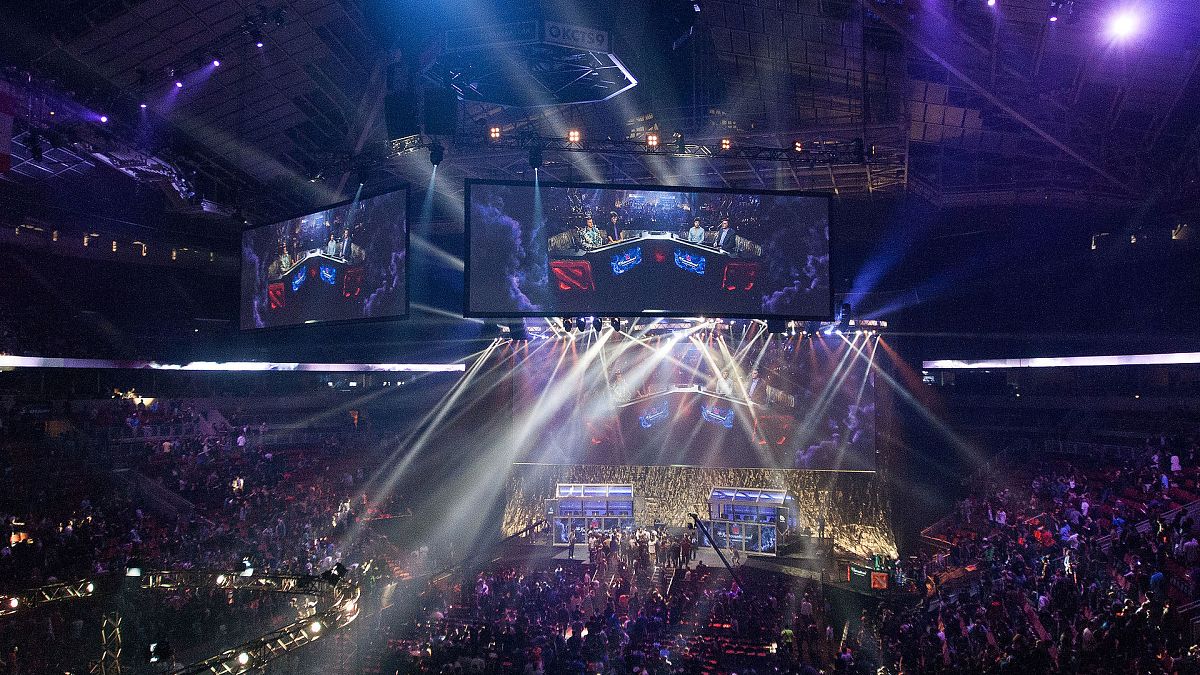Although esports lag behind traditional sports when it comes to making money—the industry makes around 800 million dollars of revenue a year—its 300 million fans put it on the map as one of the globe’s most popular sports.
Although esports lag behind traditional sports when it comes to making money—the industry makes around 800 million dollars of revenue a year—its 300 million fans put it on the map as one of the globe’s most popular sports (most reports put it as 10th or 11th most watched). But will esports ever be given the highest sporting recognition and be accepted into the Olympics?
“Obviously the physical aspect is less in videos games than it is in football, but everything else: strategising, team play, the will to win, the thrill of winning, the fear of losing. It's all the same thing, it's not much different from traditional sports,” Ralf Reichart, CEO and co-founder of ESL - the world's largest esports company - told Euronews at the 2018 edition of Web Summit in Lisbon.
The International Olympic Committee (IOC) has already made steps to get to know more about esports, in fact in June 2018 the IOC and the Global Association of International Sports Federations (GAISF) held a joint forum with esports and gaming communities to increase collaboration and “set a platform for future engagement”.
When it comes to an integration in the Olympics, a couple of potential scenarios are being discussed: one is that it enters the Games as a medal sport like any other, another is that it is created as a separate event altogether, like the Paralympics - with a different set of regulations but still under the umbrella of the IOC. However during the 2018 forum, the IOC noted that without an organisation that represents esports globally, one that could align with the Olympic values, rules and regulations, then its inclusion could not truly be considered.
While the joint forum seemed to be a promising step forward for esports, just a month later the International Olympic Committee President Thomas Bach told the Associated Press: “We cannot have in the Olympic program a game which is promoting violence or discrimination… So-called killer games. They, from our point of view, are contradictory to the Olympic values and cannot therefore be accepted…”
But Reichart doesn’t find that argument too convincing: “It's basically people who haven't played the games... At the end of the day it's much less violent than fencing which is about killing someone with a real sword. I think it's still a misconception and I think that people who have grown up with video games will have a different view.”
The recent negative comments from the IOC leader haven’t dampered Reichart’s belief that esports will be integrated into the Olympics at some point, “It's going to happen, it's just a question of when. The latest developments indicate that it's taking longer than the next 2 or 4 years but that it is going to happen, I think, is without question.”
A common criticism of esports and its recognition is that gaming is not physical enough to be considered a sport. Eichart said: “My argument will always be it is different, so either accept it or leave it. If you want to compare it to a traditional sport it suddenly more physical than golf. Which widely is considered a sport”.
For others, the main concerns surround the physical health of the players. It was an issue raised by Meeta Singh, Chief of Sleep Medicine at the Henry Ford Health System, at Web Summit event, where she cited the lack of fitness and sleep deprivation: “Putting player well-being at number one is how you get into the Olympics. And that set up in which you have a team doctor, and athletic trainer, you have a psychologist, a nutritionist.”
Singh also called for regulation to deal with doping and standardising practice hours to protect players.
Reichart is somewhat more hesitant when it comes to regulation. Whilst he supports an official players’ body and already organises doping checks at his events, he is against any government interference in the game: “We don’t want a government or an IOC trying to change the sport because they think it makes sense. We’ve seen this with football leagues and what comes out... We’d rather changes come from the bottom up rather than the top down.”
It seems that esports still have a long road ahead of them before being fully accepted into the Olympics but it’s definitely on the right track. Either way, it won’t make much of a difference to its booming commercial industry (big brands like Mercedes, McDonald’s and Vodafone are already involved) but for many of the players and fans, it is the ‘holy grail’ of sporting achievement and will mark the the game’s true acceptance into the sporting world.


